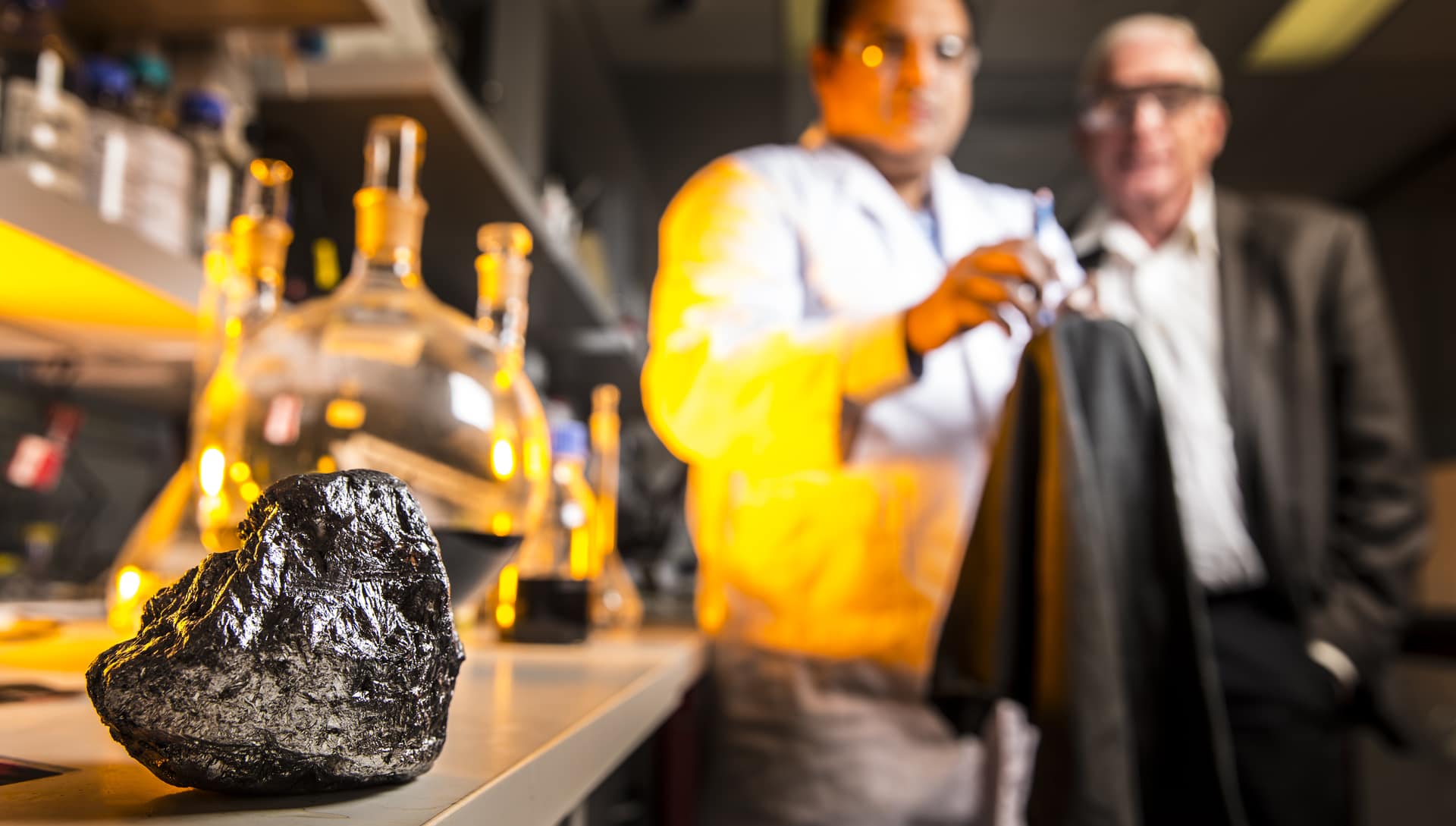Foldable batteries and scaffolds for muscle
Patented University of Wollongong technology is being used to create foldable batteries and textiles that are super strong, light, can repel water, and act as sensors.
Australian company Imagine Intelligent Materials has a commercial licensing deal to use the graphene manufacturing technology, developed at the ARC Centre of Excellence for Electromaterials Science (ACES) at the University of Wollongong.
Graphene has been put forward as the ‘wonder kid’ of materials – with the illusive promise of a material thinner than hair, harder than diamond and more conductive than copper. Potential markets include civil engineering, mining, agriculture, defence, and aerospace. But it has been difficult to manufacture in any great quantity – until now.
“With this technology, we’ve created dispersions of graphene in an organic solvent. We’re now mixing these with polymers to make them more conductive and increase their strength,” says Chief Investigator Professor David Officer.
“We’re also adding these graphene dispersions to cloth and plastic to make flexible, conductive materials.”
Meanwhile, the ACES scientists are continuing to build on the technology they developed. Aside from using the graphene-enhanced materials to build foldable batteries, other teams are taking advantage of graphene’s organic and conductive nature to create brain probes and potential body parts.
“We are growing a variety of cells on these graphene polymer composites. This allows us to make specific cell growth platforms and investigate their potential to create new muscle and nerve containing structures in animals with our colleagues at St Vincent’s in Melbourne,” David says.

David and Dr Sanjeev Gambhir (left) examine the flexible, conductive materials created by adding graphene dispersions to cloth and plastic. Credit: Paul Jones/University of Wollongong




